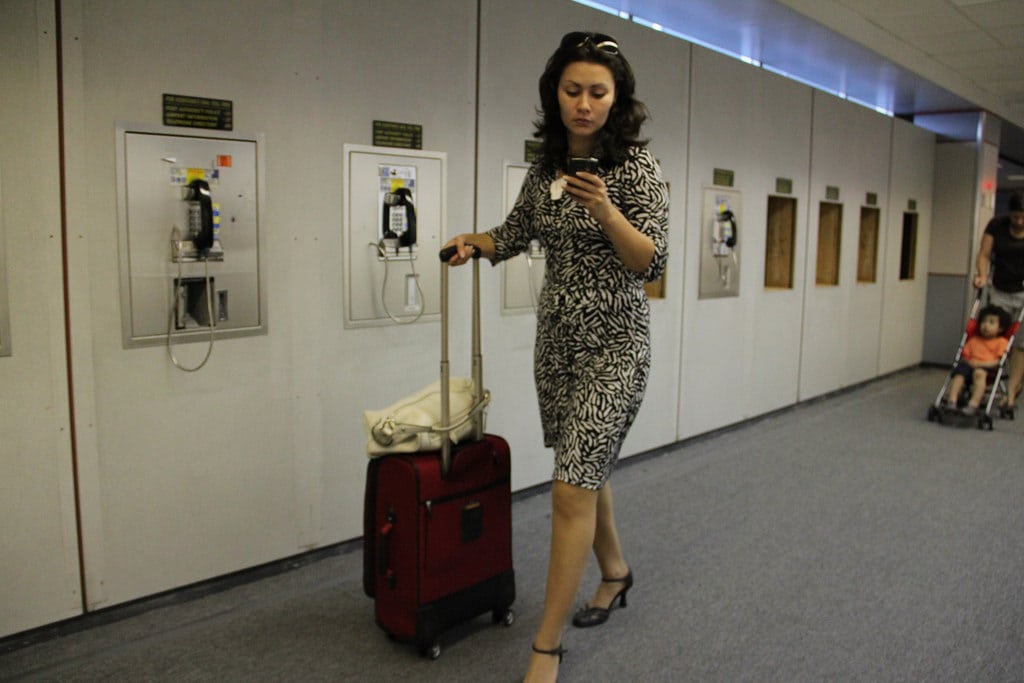Skift Take
The holy grail for a travel manager would be an all-in-one app that travelers would actually want to use while staying within company policy — and on the radar in case of emergency. Goals are good.
Business travelers around the world are using mobile apps for services including airlines, hotels, online booking, and car rentals.
What aren’t they doing much of on their mobile devices? According to new research from the Global Business Travel Association, some of the least popular activities for travelers included managing expenses and itineraries and using travel management company-provided tools.
“Technological innovation has given business travelers greater control of their own travel, but that doesn’t need to mean trouble for a managed travel program,” said Mike McCormick, GBTA’s executive director and chief operating officer. “Travel buyers can recommend apps for their travelers to help drive compliance and can also take advantage of technology to track and more easily assist their travelers in case of an emergency, helping fulfill their duty of care requirements.”
The survey on mobile technology, conducted in late March and early April with Sabre Corporation, queried 756 business travelers from the United States, Canada, Germany, Italy, Spain, Denmark, Finland, Norway, and Sweden.
Nearly 80 percent of business travelers in the United States and Italy — and more than 70 percent in Canada and Spain — said they would rather manage their own travel with self-service technology than use an employer’s travel department or agency.
Airline apps were used most often by the majority of the groups, followed by lodging, online booking sites, car rental and restaurants, depending on the country.
Fewer than a third of Americans and just under 20 percent of Canadians said they used ride-sharing apps, while between 7 percent and 14 percent of Europe-based travelers took advantage of the option.
Fewer than 14 percent of travelers used a travel management company’s app, while 10-20 percent said they used itinerary management tools. Expense management was slightly more popular, with 17-26 percent of respondents from most countries saying they used apps for the purpose.
“In general, I think we’ve seen that the corporate technology world still lags behind that leisure world,” said Monica Sanchez, director of research for the GBTA. “It’s a lot more complex, so it hasn’t been able to catch up to our other world.”
While safety remains a top priority for companies who send employees on the road, fewer than 20 percent of respondents said they had used an app that allowed their location to be tracked. Roughly 20-25 percent of respondents from most countries said they had used an app to check in during their trip.
According to the study, most companies stay silent on the question of apps: 20 percent or fewer of the respondents from most countries said their employer had specific apps they required for business travel, while about half said no travel apps were recommended. Between one-fifth and one-third of respondents said they were allowed to use their own favorite apps.
“The limited efforts by most Travel Managers to require or promote travel apps may contribute to low usage rates for TMC and expense management apps,” the report said. “However, travel managers should also consider the costs of remaining idle. They could miss an opportunity to curb out-of-policy behavior that travelers might engage in when they use their own favorite apps.”
The Daily Newsletter
Our daily coverage of the global travel industry. Written by editors and analysts from across Skift’s brands.
Have a confidential tip for Skift? Get in touch
Tags: apps, business travel, gbta
Photo credit: A woman checks her cellphone while walking through the airport. Matthew Hurst / Flickr
